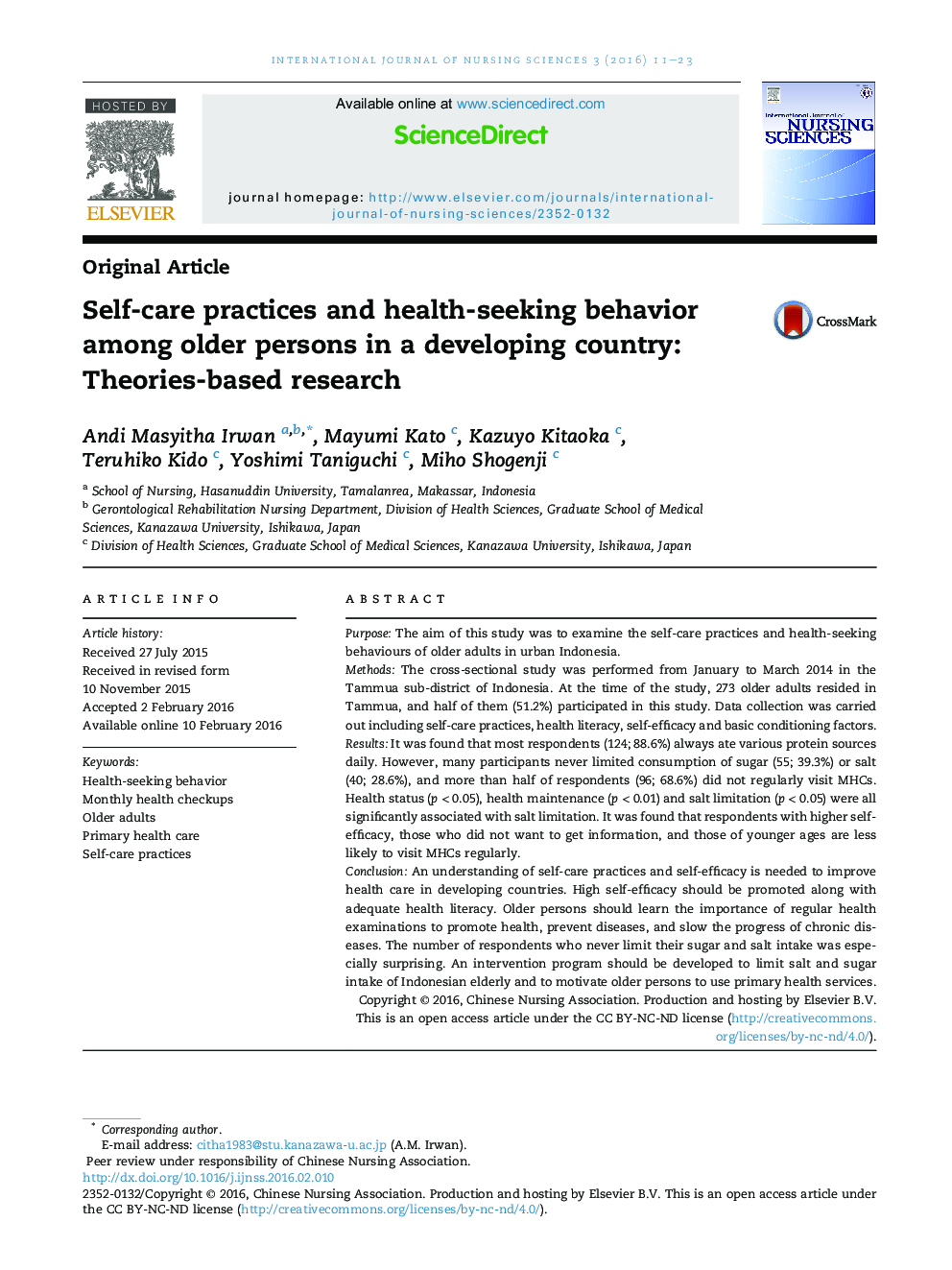| Article ID | Journal | Published Year | Pages | File Type |
|---|---|---|---|---|
| 2652748 | International Journal of Nursing Sciences | 2016 | 13 Pages |
PurposeThe aim of this study was to examine the self-care practices and health-seeking behaviours of older adults in urban Indonesia.MethodsThe cross-sectional study was performed from January to March 2014 in the Tammua sub-district of Indonesia. At the time of the study, 273 older adults resided in Tammua, and half of them (51.2%) participated in this study. Data collection was carried out including self-care practices, health literacy, self-efficacy and basic conditioning factors.ResultsIt was found that most respondents (124; 88.6%) always ate various protein sources daily. However, many participants never limited consumption of sugar (55; 39.3%) or salt (40; 28.6%), and more than half of respondents (96; 68.6%) did not regularly visit MHCs. Health status (p < 0.05), health maintenance (p < 0.01) and salt limitation (p < 0.05) were all significantly associated with salt limitation. It was found that respondents with higher self-efficacy, those who did not want to get information, and those of younger ages are less likely to visit MHCs regularly.ConclusionAn understanding of self-care practices and self-efficacy is needed to improve health care in developing countries. High self-efficacy should be promoted along with adequate health literacy. Older persons should learn the importance of regular health examinations to promote health, prevent diseases, and slow the progress of chronic diseases. The number of respondents who never limit their sugar and salt intake was especially surprising. An intervention program should be developed to limit salt and sugar intake of Indonesian elderly and to motivate older persons to use primary health services.
